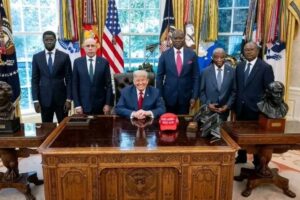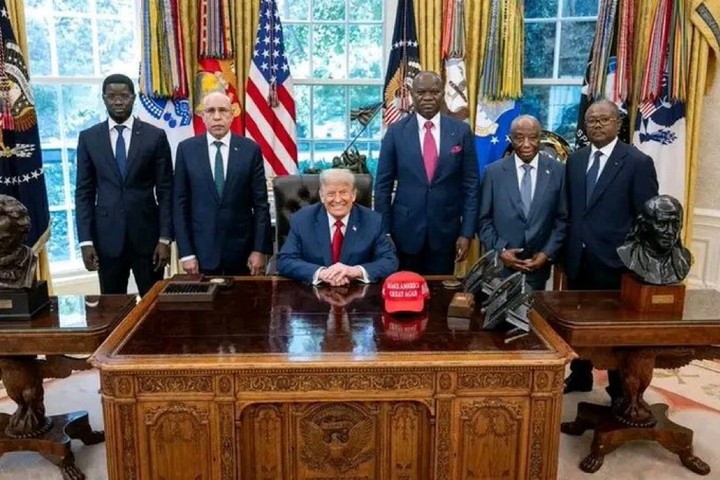U.S. President Donald Trump recently hosted the presidents of Gabon, Guinea-Bissau, Liberia, Mauritania, and Senegal at the White House, in a meeting that came at a pivotal time for U.S.-Africa relations. The gathering took place against the backdrop of Trump administration policies that have included proposed cuts to U.S. foreign aid, the imposition of tariffs, and potential travel bans—measures that have directly affected several of the visiting nations.

During the meeting, President Trump emphasized a new approach to Africa centered on trade rather than aid. He highlighted the continent’s economic potential and encouraged U.S. investment in Africa’s natural resources. This shift in policy reflects the administration’s broader strategy of fostering commercial ties over traditional development assistance.

However, critics argue that the administration’s actions contradict its stated goals. Gyude Moore, a policy analyst, pointed out the inconsistency of advocating for increased trade while simultaneously restricting travel—a move that undermines vital business and interpersonal connections needed for trade to thrive.

How can one president line up others to stand up behind him like his servants?
The future of the African Growth and Opportunity Act (AGOA), a landmark trade agreement that offers preferential access to U.S. markets for African countries, also remains unclear. With the act nearing its expiration, President Trump provided no assurance of its renewal, further deepening uncertainty. Observers have expressed concern that the administration’s trade policy may disproportionately benefit U.S. interests, casting doubt on the depth of its commitment to true economic partnership with Africa.
The Liberian President’s Reaction to Trump’s Insult




